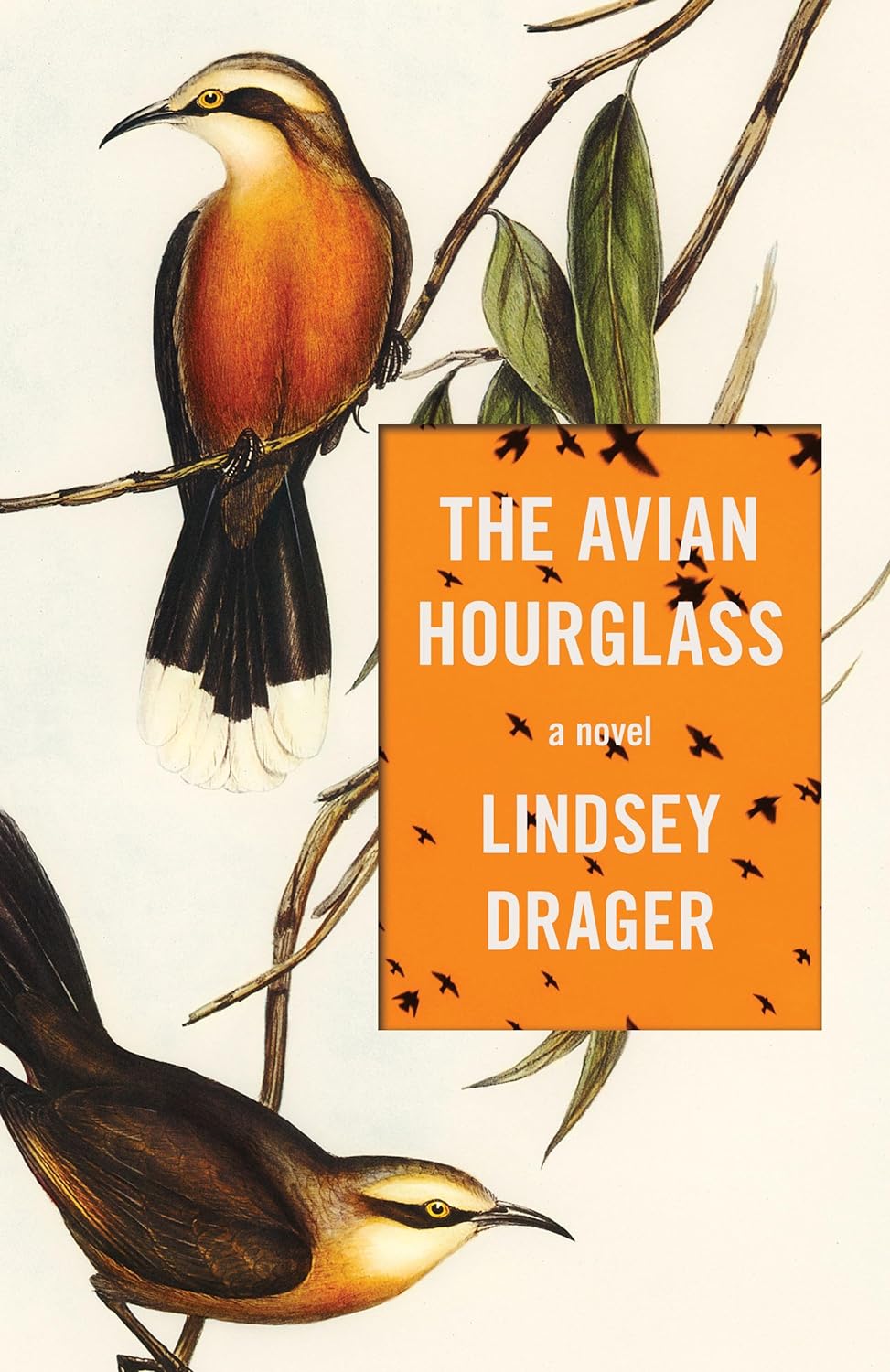Review of The Avian Hourglass by Lindsey Drager

The Avian Hourglass
Lindsey Drager
Dzanc Books, 2024, 212 pages
$17.95
Reviewed by Sara Youngblood Gregory
Author and professor Lindsey Drager’s latest novel, The Avian Hourglass, is a kaleidoscopic, rigorous, and sometimes disorienting movement through speculative fiction and surrealism.
Written in the first person, the novel follows an unnamed narrator struggling to manage her life in a small, sometimes claustrophobic town. The narrator is a bus driver but dreams of becoming a radio astronomer, dutifully studying to take the exam she has already failed four times. Meanwhile, she acts as the legal guardian to triplets—children she gave birth to as a gestational surrogate but whose parents died in a car accident before the novel’s opening. As if this weren’t enough, the narrator, her children, and a patchwork of town folks must grapple with The Crisis, a looming and insistently vague upheaval that disappears birds, covers the stars, and acts as a stand-in for environmental and political degradation and emotional estrangement.
However, if you are expecting a typical end-of-the-world novel about loneliness, climate change, and the human spirit, The Avian Hourglass is a different beast entirely. Rather than focus on the material pursuits of apocalypse—like food or pollution or gathering supplies—Drager is concerned with emotional and linguistic sustenance. The narrator frequently considers etymology, memory, birds’ nests, planets, and legends with an almost orbital obsession.
Near the novel’s opening, the narrator shares some of these stream-of-conscious, cyclical thoughts:
“Luce tells me the world effect comes from the Old French and Latin for completion, result, accomplishment, and ending. Intent, she says, comes from intend, which in Old French means to stretch or extend. The problem is this: the idea of having intention—the idea of having control over effects by altering their causes—seems silly when my deja vu confirms for me that every move I make was meant to be. This is how I know I’ll pass the test” (18).
At times, these musings are arresting—at others confusing—but perhaps all the more powerful for it. All in all, The Avian Hourglass is a compelling, intellectual, and emotionally-charged take on climate fiction.
Sara Youngblood Gregory is a lesbian journalist and poet. She serves on the board of directors for Sinister Wisdom.
"Empowerment comes from ideas."
― Charlene Carruthers
"Your silence will not protect you."
— Tourmaline
"Gender is the poetry each of us makes out of the language we are taught."
— Leila Raven


